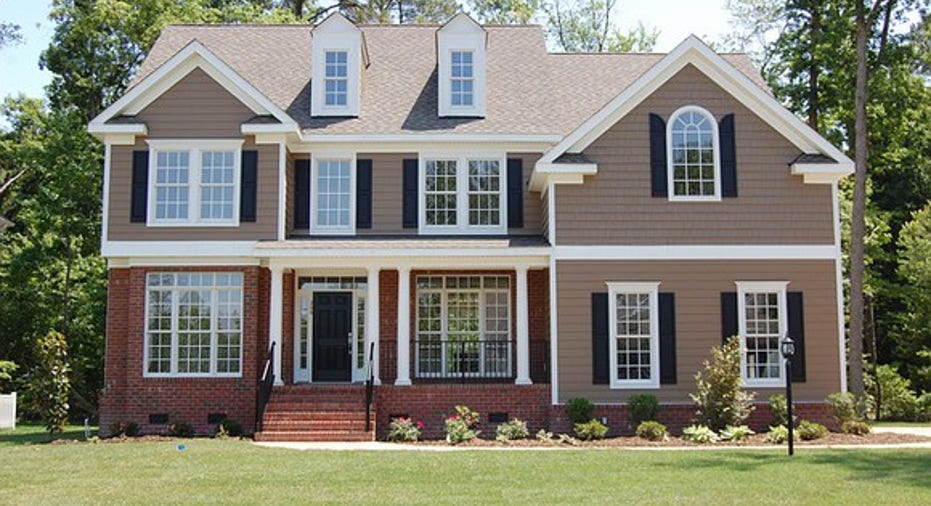3 Financial Moves to Make Before Buying a Home

Homeownership has long been touted as the ultimate American Dream. And there are plenty of good reasons to own a home -- namely, tax benefits, the chance to build equity, and not having a landlord to answer to. The problem, however, is that many people jump into homeownership when they're not financially ready, which might explain why 2015 saw almost 1.1 million foreclosure filings across the U.S.If you're intent on buying a place to call your own, here are three key financial moves to make before applying for that mortgage.
IMAGE SOURCE: PIXABAY.
1. Establish an emergency fund
You never know when you might find yourself without an income, and while failing to pay your rent is definitely bad news, failing to pay your mortgage could put your homeowner status at serious risk. Before you set out to buy a home, make sure you have enough money saved up to cover at least six months' worth of living expenses. You can use this nifty calculator to figure out your estimated monthly payment for your mortgage, real estate taxes, and homeowners insurance based on your anticipated purchase price and down payment. From there, add that total to your other expenses, such as utilities, food, healthcare, and the like, and multiply it by at least six.
When calculating how much you'll need to save, don't forget to account for some of the costs that you may not face as a renter, like snow removal, lawn care, or sewer service. Remember, too, that if you're moving to a larger space, you're likely to see an increase in your heating and cooling bills. Also keep in mind that as a homeowner, you may encounter maintenance and repair costs that creep up at the worst possible times. If you lose your job and come home to a leaky roof, that's not the sort of thing that can wait several months till you're back in the game, so be sure your emergency fund has some padding for when the unexpected inevitably strikes.
2. Save for a sizable down payment
There's a reason so many would-be homebuyers aim for a 20% down payment. Doing so lets you avoid PMI, or private mortgage insurance, which is basically your lender's way of minimizing its risk in offering you a home loan. PMI is usually calculated as 0.5% to 1% of your loan amount, which can really add to your monthly payment.
Let's say you take out a $300,000 mortgage and need to pay PMI at a cost of 1%. You're looking at an additional $3,000 per year, or $250 each month, on top of your regular mortgage payment. And if you're counting on the tax break that many get as a consolation prize of sorts, be sure to consider this if you have a relatively high income: The PMI deduction starts to phase out once your income exceeds $100,000, or $50,000 for married folks filing separately, and if you earn more than $109,000 ($54,500 if married and filing separately), you won't get to claim it at all. To avoid paying PMI, come up with the full 20% and keep your mortgage debt -- and associated payments -- to a minimum.
3. Build up your credit score
If your credit is truly abysmal, you may not even get a mortgage in the first place. But if your credit is just good enough to get approved, albeit at a less favorable rate, you could end up paying much more for your home than someone with significantly better credit.
Let's say you're looking at a $150,000 mortgage. With good credit, you might get approved at 4% for a 30-year fixed loan, leaving you with a monthly payment of $716. But watch what happens if your credit isn't as good and you're approved at 7%. Suddenly, your monthly payment jumps to $998. Over the course of 360 months, that's an extra $101,500 in payments just to own the same home. The more you're able to improve your credit before applying for a mortgage, the better positioned you'll be to snag a good rate. You can start by paying off small debts and examining your credit report for mistakes. A good 20% of credit reports contain errors, and clearing up an obvious inaccuracy could give your credit a much-needed boost.
Owning a home is a huge responsibility, and it's not one to be taken lightly. Adjusting to life as a homeowner can be stressful enough on its own, so you're best off getting to a place where you're as financially secure as possible before taking the leap.
The article 3 Financial Moves to Make Before Buying a Home originally appeared on Fool.com.
Try any of our Foolish newsletter services free for 30 days. We Fools may not all hold the same opinions, but we all believe that considering a diverse range of insights makes us better investors. The Motley Fool has a disclosure policy.
Copyright 1995 - 2016 The Motley Fool, LLC. All rights reserved. The Motley Fool has a disclosure policy.



















